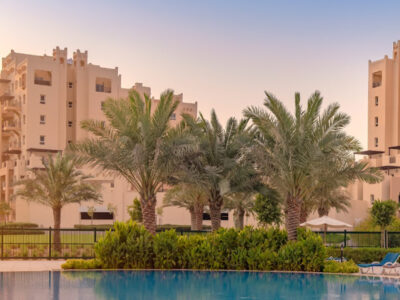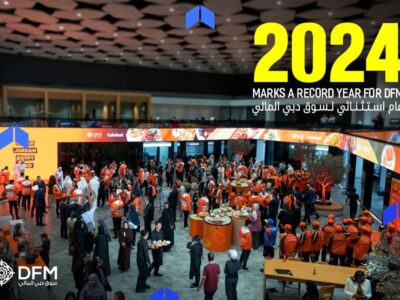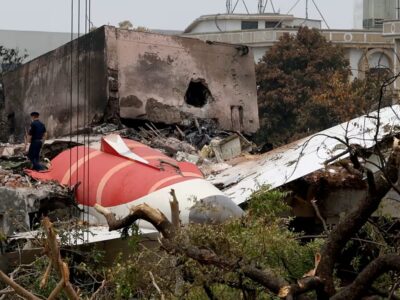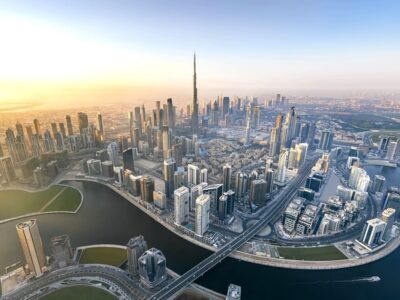Eclipsed for many years by its more oil-rich cousins in the Gulf, the island kingdom of Bahrain is now fighting back, but faces obstacles on its path to further economic development.The capital club bahrain is a hive of activity. An enthusiastic team of builders adds the final touches to the venue’s luxury rooms, while staff listen patiently to a final briefing on the club’s impeccable personal service standards. A designer rushes around making sure the expensive custom made furniture is all in place.
It is the day before the kingdom’s most exclusive venue throws open its doors to the great and good of Bahrain. Its 300 members, strictly invite only, include sheikhs as well as chief executives and chairmen of some of the biggest companies in Bahrain.
Bahrain’s banks have reaped the rewards of avoiding risky investments in toxic assets, which have deeply hit financial institutions elsewhere in the world.
“It’s a bit hectic,” smiles general manager David Williamson, as he watches workers delicately manoeuvre the gleaming marble top of the bar into position. “Bahrain has a relatively small social scene but as the financial centre of the Middle East, this was the logical place to open a business club.”
Bahrain’s selection as the latest location in the network of prestigious Capital Clubs, which are already present in London, Berlin and Bahrain’s flashy neighbour, Dubai, is a signal of the island’s budding emergence on the global financial stage as a leading business centre.
Bahrain Financial Harbour (BFH), where the club will occupy the top two floors of one of the iconic twin towers forming part of the development, is a $1.3bn financial city in the heart of Manama that is attracting a growing clientele of global banks and institutions.
And this week the international spotlight will fall on the kingdom, as it hosts the 2009 Gulf Air Bahrain Grand Prix, an event which last year generated almost $600m for the national economy.
As the maelstrom from the global recession batters the region, Bahrain, the least indebted and most diversified economy in the GCC, has been less hard hit than some of its richer neighbours. And in recognition of its emerging international presence, Bahrain was last month named the best country to do business in the Gulf in 2009 by Forbes, in the US publication’s annual global list.
For years, the small nation has been overshadowed by Dubai and the hydrocarbon-wealthy economies of Qatar and Abu Dhabi, which have used their deeper oil reserves to fuel an unprecedented economic surge.
With an average 6.9 percent growth of gross domestic product (GDP) between 2003 and 2008, Bahrain’s development has been steady but unspectacular by GCC standards.
But as the crisis takes hold and the property bubble into which the UAE and Qatar invested so much has deflated, Bahrain’s conservative approach to economic development appears to have been vindicated.
“We have focused our growth in the past on building foundations ahead of building landmarks,” says Kamal Ahmed, chief operating officer of Bahrain’s Economic Development Board. “Building foundations has helped us go through this crisis.”
At a time when most nations’ banking sectors have been severely exposed to the downturn, Bahrain’s financial industry, which in 2007 accounted for 25 percent of the state’s GDP, has proved its towering strength.
Its banks have reaped the rewards of avoiding risky investments in toxic assets, which have deeply hit financial institutions elsewhere in the world. Just two regionally-owned and locally-based banks, Gulf International Bank and Arab Banking Corporation, have announced significant losses from investments in the subprime property market.
Ahmed says the caution exercised by banks was due to the strict regulatory environment imposed by the Central Bank of Bahrain, the country’s steely regulator, which allowed limited lending during the oil boom years.
“The conservative approach seems to have been proved as the best model for the financial sector,” says Ahmed. “Our central bank is acknowledged to be the best regulator in the region and has ensured the liquidity of the banks is adequate and sufficient liquidity has remained in the market.”
But Bahrain’s banks have not escaped completely unscathed from the credit crunch; profits of listed banks slumped 17.6 percent in 2008.
Ahli United Bank BSC, the largest commercial lender in Bahrain by market value, saw its non-performing loans in 2008 surge to 1.9 percent from 1.2 percent in 2007. In addition, the bank had to write off its international assets, resulting in a loss of $12.4m, compared to a profit of $24.9m the year before.
Meanwhile, shareholders of Bahrain-based Gulf International Bank (GIB), owned by the six GCC states, have had to bail out the troubled institution by buying $4.8bn of toxic asset-backed securities.
Nonetheless, Bahrain’s reputation for prudence in the banking sector has helped to attract a flood of financial institutions to the kingdom. More than 44 new financial institutions were registered in 2008, compared with 37 the previous year, according to Ahmed.
He says Bahrain has seen growth of almost 10 percent GDP in the financial sector in the last ten years and almost 100 percent growth in the insurance sector in the last five years.
Bahrain has also carved a name for itself as a centre for Islamic finance, with its institutions operating in the sector also relatively unharmed by the subprime fallout.Trading in Islamic products will be offered by the Bahrain Financial Exchange when it begins operating in the first quarter of 2010.
The government will start selling $500m of Sharia-compliant five year bonds, known as sukuks, from May 27, a central bank spokeswoman told newswire Bloomberg this month. Bahrain’s sale will be the first from the region this year.
The government has said it will also issue three year debt in local currency to raise a further $663m. Ahmed says the bonds will be used to pay for infrastructure and social housing building projects.
Unlike Saudi Arabia and Oman, Bahrain has not built up large foreign currency reserves to cushion its economy from the fall in oil prices.
A magnet for this economic surge has been the BFH, a district which Bahrain views as a significant move in its bid to reassert itself as the financial capital of the Middle East, after the Dubai International Financial Centre stole a march upon its completion in 2004.
Under construction in ten phases on 380,000 sq m of reclaimed land adjacent to Manama’s existing commercial centre, the financial community development of BFH incorporates commercial, residential and leisure components.
In addition to the BFH, two of Bahrain’s biggest projects have not been derailed by the global economic crisis. Construction work on the $2.5bn Bahrain Bay Development waterfront development in Manama is expected to begin in earnest this year.
Meanwhile, building of the $3bn Qatar-Bahrain Causeway is also slated to start by the end of 2009, according to the project’s developers. A team of 150 engineers in the region and more overseas are working on the final study for the 43km bridge linking the two Gulf nations, also known as the ‘Friendship Bridge’. The project is expected to be completed in 2013.
Bahrain’s property market has, in general, not witnessed the dramatic corrections seen in recent months elsewhere in the GCC.
“The real estate sector in Bahrain has felt the effects of the global financial crisis but we are in an extremely strong position compared to other areas around the region,” says Richard Browning, chief executive of luxury developer Riffa Views.
“Property prices in Bahrain did not reach the heights of other real estate markets during the boom period of the last couple of years, and we gained value by having a somewhat delayed reaction to implementing large scale development projects,” he continues. “As a result, properties in Bahrain are more likely to retain their value.”
Nevertheless, one potential stumbling block to Bahrain’s success story is the price of oil. Although the smallest oil producer amongst the Gulf states, crude is Bahrain’s chief revenue source. The value of the commodity has slumped more than 60 percent since the highs of $147 a barrel last July, with Bahrain expected to post its biggest budget deficit in 11 years as a result, according to the Economist Intelligence Unit.
The Ministry of Finance has said it expects the country to run a deficit of BHD684m ($1.8bn) this year and BHD728m ($1.9bn) next year. In response, Bahrain’s government has announced plans to raise $1.16bn by selling dollar and local currency bonds, a move seen as a way to meet Bahrain’s financing requirements.
“Government bonds and sukuks are regularly used by Bahrain as liquidity management tools,” says Jane Kinninmont, an economist covering Bahrain for the Economist Intelligence Unit. “But this year they have a sizeable budget deficit to finance.”
Kinninmont says that although Bahrain’s parliament has yet to decide on the kingdom’s latest spending plan, the country may post a budget deficit of just under seven percent of GDP, the country’s first deficit since 2000.
And while this deficit has to be balanced against five years of budget surpluses that the country enjoyed during the oil boom, unlike Saudi Arabia and Oman which have also presented deficit budgets, Bahrain has not built up large foreign currency reserves to cushion its economy from the fall in oil prices and the global recession.
“Government spending has been a big contributor to growth and the fact that its revenue will fall this year will constrain the government’s ability to spend more money, so hindering growth,” says Kinninmont.
A slide in foreign direct investment and a fall in regional demand for Bahrain’s exports, combined with the slower growth of its near neighbour Saudi Arabia, a key contributor to the island’s tourism industry, would also inhibit growth, she says.
Nevertheless, Kinninmont predicts Bahrain’s GDP growth this year will be between two and three percent, which is enviable by global standards in the present financial climate.
As the kingdom’s business leaders settle into the comfortable armchairs adorning the Capital Club Bahrain, they will be reassured in the knowledge that although the island nation has not been immune from the impact of the global recession, it will not require a radical rerouting of its steady upward economic path.








